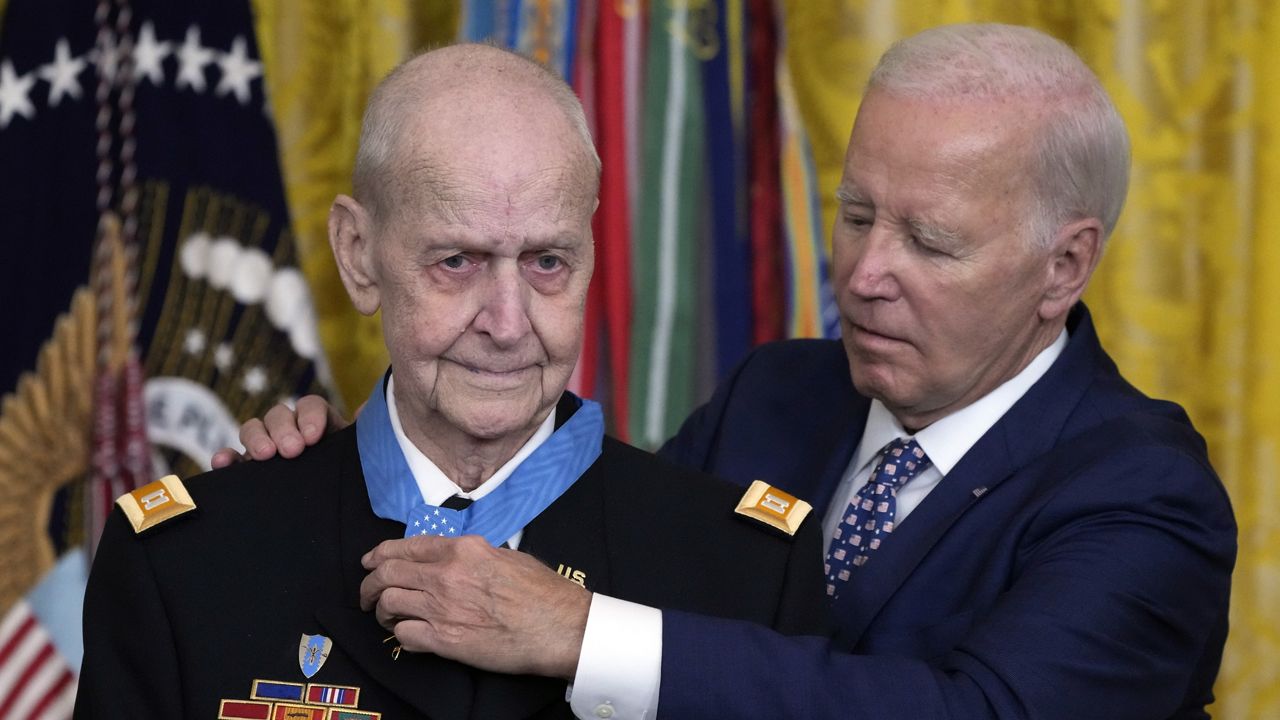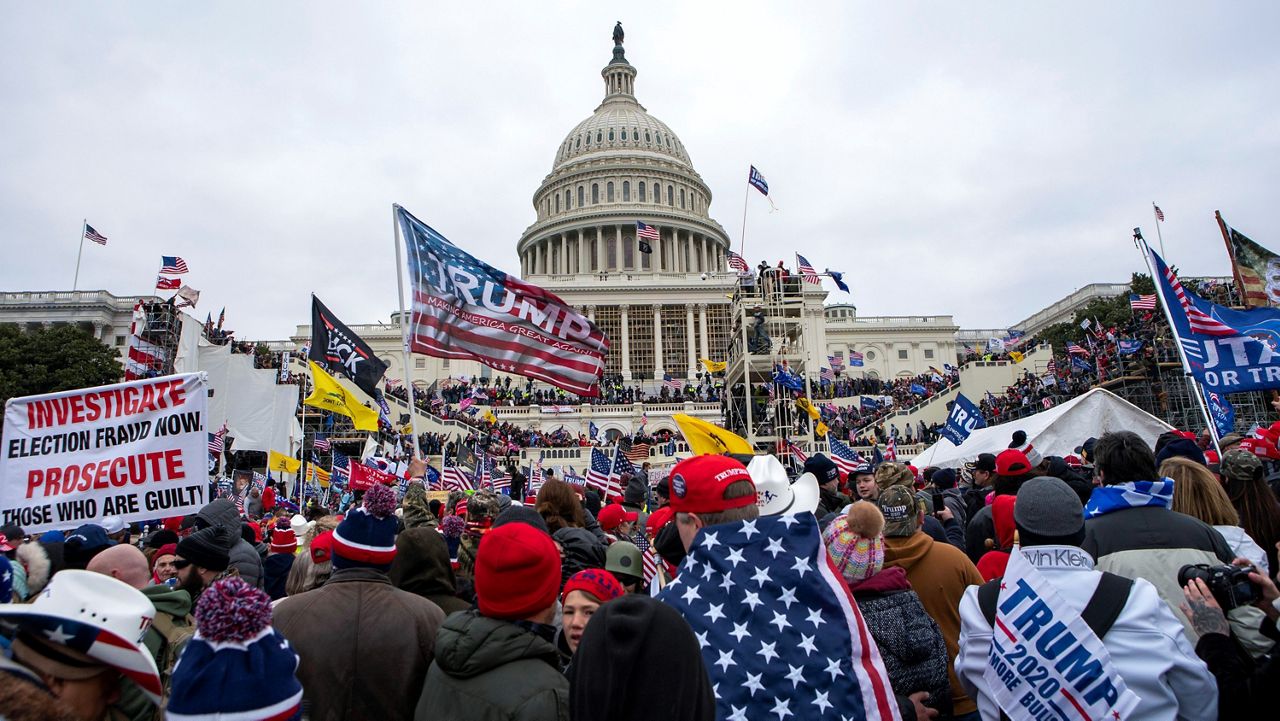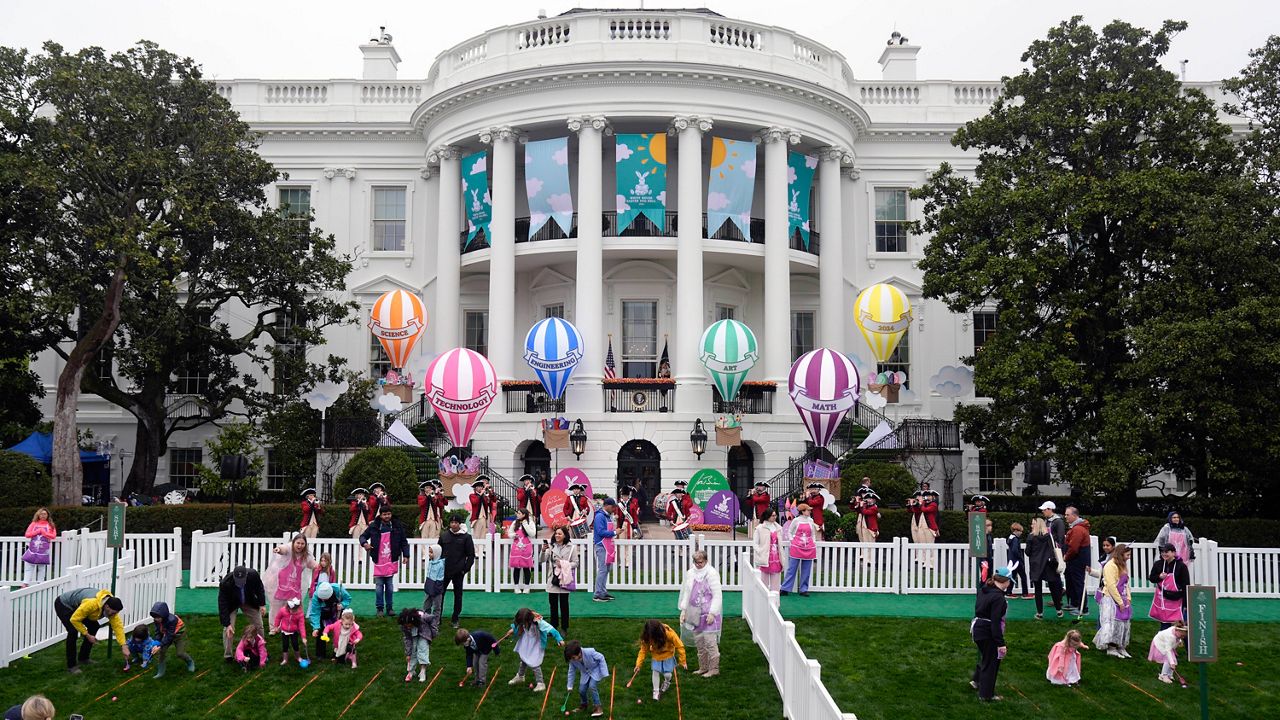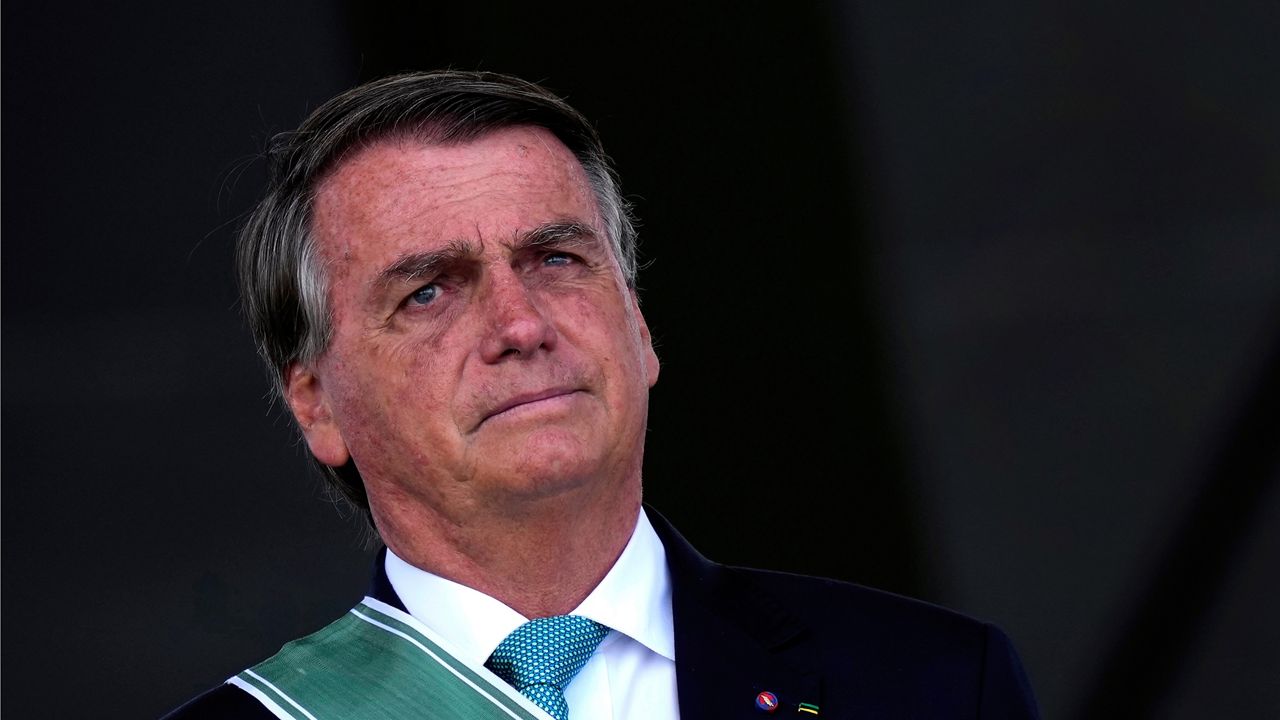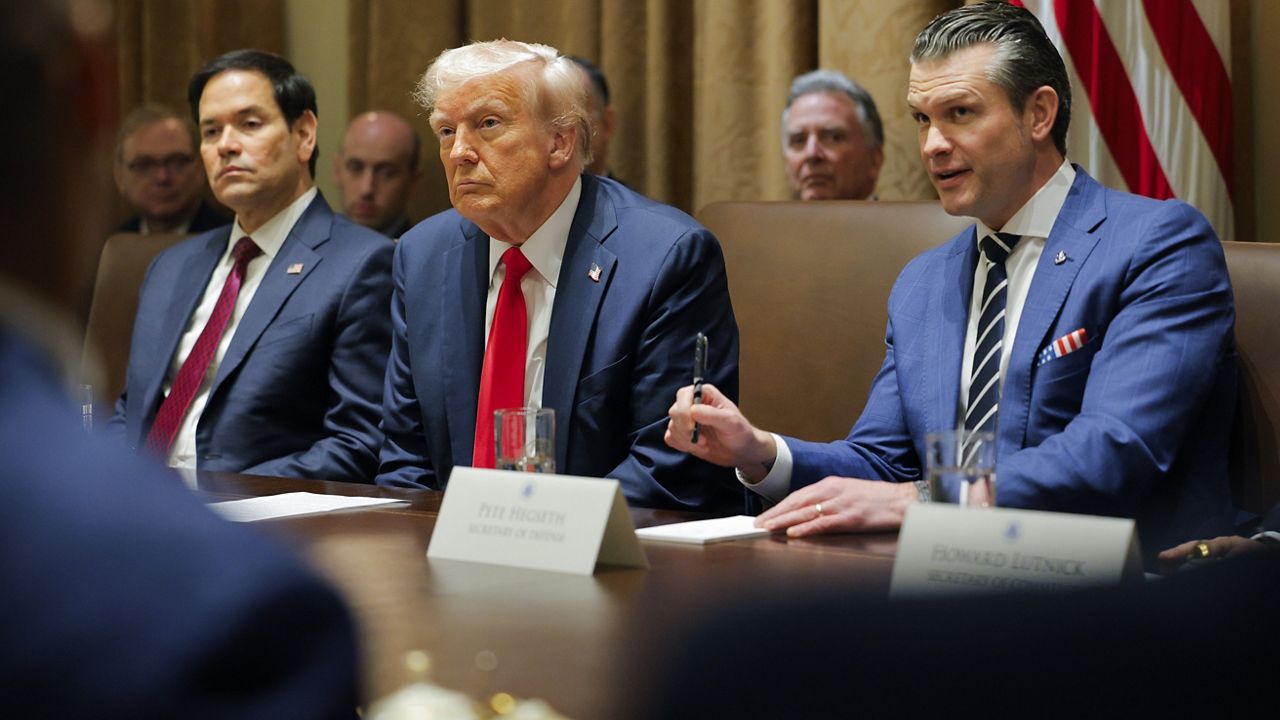President Joe Biden on Tuesday awarded the Medal of Honor, the military’s highest decoration, to Army Captain Larry L. Taylor, who risked his life to save four members of a reconnaissance team that were surrounded by enemy soldiers.
The president said that by answering the call of duty decades ago, Taylor, now 81, "rewrote the fate of four families for generations to come."
"That’s valor," Biden said. "That’s our nation at its very best"
Taylor was born in Chattanooga, Tennessee, and graduated from the University of Tennessee, Knoxville. In June 1966, he was commissioned a Second Lieutenant in the U.S. Army Reserve before entering the Army about two months later.
"Born in the Volunteer State, raised by a World War II veteran, duty defined Larry Taylor's life, his earliest days," Biden said.
"Larry had dreamed of leading leading men into battle on what he called chariots of steel," the president later added. "But it didn't take too many days on the ground for Larry to realize he belongs in the sky. He wanted to be a pilot. Not just any pilot, a Cobra pilot, flying the newest, fastest, deadliest army helicopter at the time. A gunship built for only two people and their ammo."
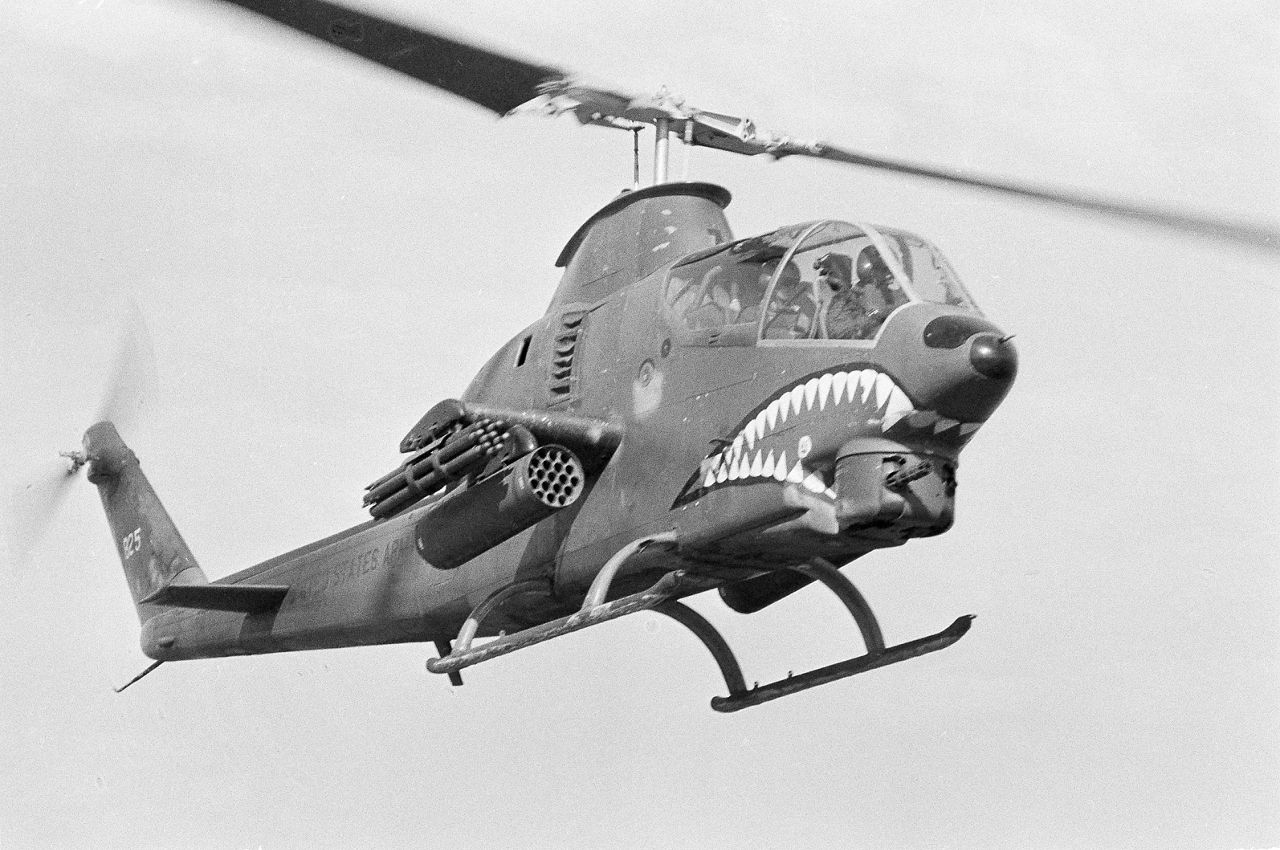
On June 18, 1968, then-First Lieutenant Taylor deployed to support to support the long-range reconnaissance patrol that had been surrounded by an enemy force. Taylor and his wingman braved intense ground fire to make low-level attack runs for the next 45 minutes.
With both helicopters nearly out of ammunition, Taylor surveyed the team’s intended escape route and realized there was little chance they would make it, then learned that a plan to rescue the soldiers with a UH-1 “Huey” helicopter was axed because there was nearly no chance it would succeed. Despite running low on fuel, Taylor determined that he was going to extract the team using his own two-man Cobra helicopter, which had never been attempted before.
Taylor directed his wingman to fire along the patrol team’s eastern flank and return to base camp, while he fired his own remaining rounds along their western flank while using the helicopter’s lights to draw the enemy’s attention, giving the patrol team time to escape to a new extraction point he determined.
Once they reached the site, Taylor landed under heavy enemy fire and extracted the team – they grabbed onto the helicopter’s rocket pods and skids, as it was just a two-seat craft – and flew them to safety.
"But the mission wasn't over," Biden said. "Lt. Taylor saw his fuel light flickering. It started off with 1,600 pounds of gas and now he had about six, not enough to make it back to base. Worse, the souls he was carrying were covered in wet mud and clinging to a Cobra against 50 knots of wind. Even if he could make it back to base, his men would freeze or fall first. So, he once more risked his own safety for his fellow teammates.
"He located a friendly area to set his burden down, four men dismounted the helo and disappeared back into the pitch-black night," the president continued. "No moon, no stars, no light beyond the glow of their faces when they briefly turned and saluted Lt. Taylor for saving all four of their lives. You wouldn't see some of these men again until 30 years later at Army reunions."
Taylor was honorably released from the Army in 1970 after reaching the rank of Captain, and was later discharged from the Army Reserve in 1973. He received several honors in combat, including the Silver Star, a Bronze Star and multiple Distinguished Flying Crosses and Air Medals.
"Thank God he's not putting them on his chest, you'd have trouble standing," the president joked.
Biden said that "the greatest honor of all" was at those Army reunions, family members of the men he saved thanked Taylor for saving their lives. Among those gathered at Tuesday's event was Sgt. David Hill, the last surviving member of the group that Taylor saved who pushed for his nomination.
The president on Tuesday recalled how he informed Taylor that he was receiving the Medal of Honor, sharing the retired Army Captain's humble response.
"When I called Larry to let him know he finally was receiving this recognition, his response was, 'I thought you had to do something to receive the Medal of Honor,'" Biden said.
"Well Larry, you sure as hell did something, man," the president added. "If you ask anyone here, I'm pretty sure they'd say something. You did something extraordinary."





